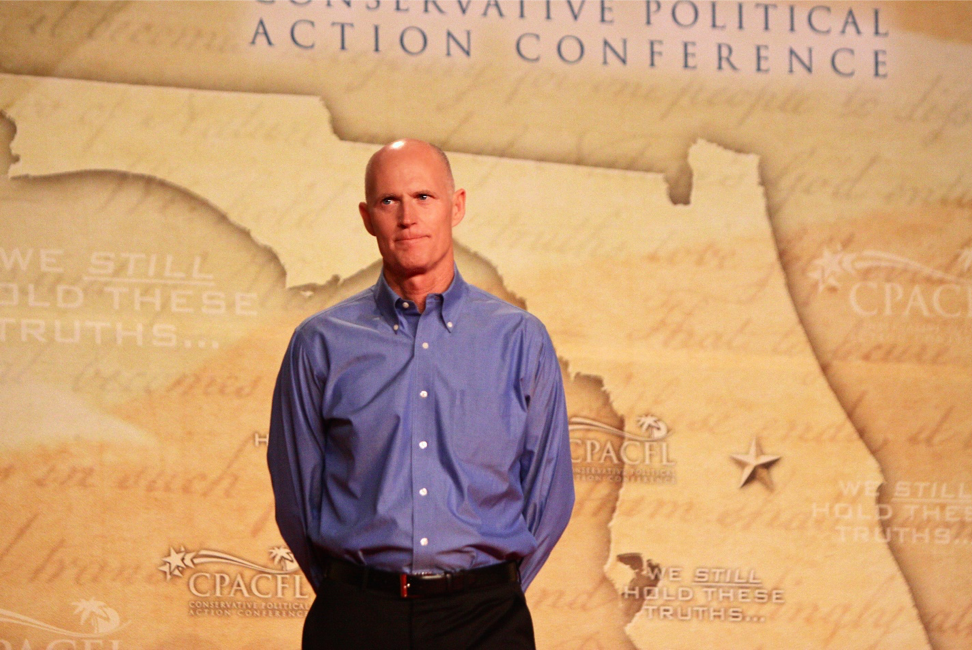On Jan. 27, just one week after the inauguration of President Joe Biden and Vice President Kamala Harris, the junior Republican senator from Florida, Rick Scott, already had strong opinions on the administration’s immigration policies.
In a letter to the acting secretary of the Department of Homeland Security, David Pekoske, Scott expressed his concerns over the new administration’s planned and implemented actions to shift the executive approach toward immigration.
The stated goals of the Oval Office center around widespread immigration reform, beginning with a slew of executive orders and proclamations within the earliest days following the inauguration.
The Biden administration aims to involve itself in this process with Congress, which the 2020 election flipped to a narrow Democratic majority, encouraging and anticipating cooperation between the executive branch and the legislature.
Such objectives mirror the Democratic Party platform in its design for immigration. Essentially, they revolve around modernizing the system to be welcoming of immigrants, restructuring enforcement and removal of unauthorized immigrants, as well as placing special emphasis on reversing the policies and actions of the Trump administration.
Scott expresses opposition in his letter: “This administration is already pushing a radical immigration agenda of amnesty and open borders;” referring to the contents of a Jan. 20 memorandum issued by Pekoske.
The main points of the memorandum include a directive to conduct a review of immigration enforcement protocol, during which deportations will be paused for 100 days and interim guidelines are to be imposed on the department and agencies under its umbrella. This notably includes the Immigration and Customs Enforcement, which has attracted controversy in recent years.
Scott describes the memorandum in his letter to Pekoske as an announcement made by Biden, when in fact, the memorandum was issued on the same day as a handful of executive orders and proclamations making strides toward various immigration reform goals, such as preserving Deferred Action for Childhood Arrivals and multiple reversals of Trump-era actions.
Inauguration-day directives from the White House began Biden’s term with a few major changes to immigration policy, but nothing directly announcing a 100 day halt on deportations was issued by the briefing room, nor was anything else mentioned by Scott in his letter. All actions Scott directly cites were contained entirely within the Jan. 20 DHS memorandum; no direct orders were given by the president publicly.
In the letter, Scott goes on to prod the Biden administration’s intentions, asking pointed questions that identify his concerns and indeed, consternation with the changes outlined in the DHS memorandum. Scott’s language is demanding when he asks Pekoske, “Can you point me to where, in statute, the Biden administration has the authority to make these kinds of sweeping changes?”
Scott served as the governor of Florida from 2011 to 2019, during which time Florida had the third-highest population of unauthorized immigrants. He sought election to the Senate during the 2018 midterm elections, running on a solidly Republican platform. His consistent stance on immigration issues like heightened southern border security, reform of programs like DACA, and strong disapproval of illegal immigration are hallmarks of his politics.
This is apparent in many instances both before and after the election to the Senate in 2018. His statement on immigration from his senatorial campaign website saying, “Governor Scott is an outspoken opponent of illegal immigration and believes Congress must take action to secure the border and fix the long-broken immigration system,” parallels a piece published by The Washington Post on Feb. 1, 2019: “I am inflexible when it comes to illegal immigration. I am against it, always have been and always will be.”
Rick Scott’s letter to Pekoske combines rubrics of both ideology and legality to question the Biden administration’s immigration reforms. Above anything else, the letter reaffirms Scott’s side of the immigration debate. He writes to confirm his focus on border security and legal immigration, rejecting large strides of amnesty toward illegal aliens.
Regardless of who penned the orders, Scott clearly views the contents of the Jan. 20memoranda as an extension of the Biden administration and as a two-page representation of the political divide between the Republican senator and the new, Democrat-led executive branch.
Featured image: Current Senator Rick Scott at the Conservative Political Action Committee in 2011. Unmodified photo by Gage Skidmore used under a Creative Commons license. (https://bit.ly/2MY2P79)
Check out other recent articles from the Florida Political Review here.






One Comment
Someone
A badass wrote this